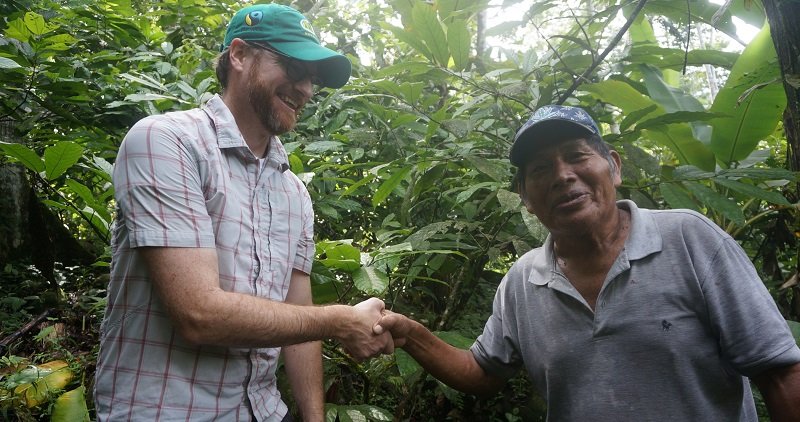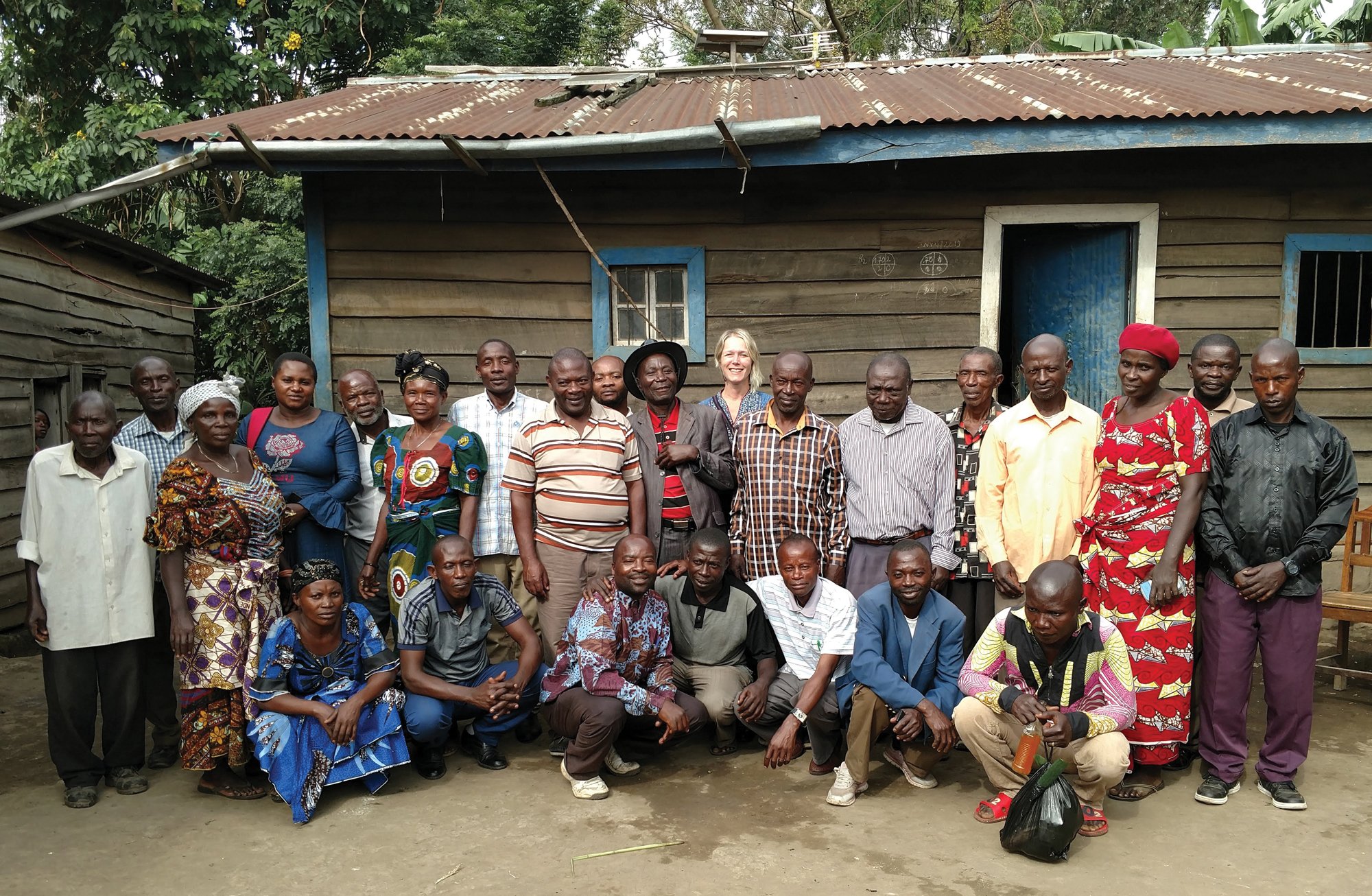About Our Solidarity Box
We've put together a collection of some of our best-selling products from small-farmer cooperatives around the world. Whether you buy a box for yourself or give one as a gift you are taking a stand in solidarity with small farmers worldwide.
Equal Exchange relies on your participation in order to realize our vision, which is more threatened today than it was a decade ago. It is because of you and your support for products like this Solidarity Box that Equal Exchange is able to carry out our work. For 35 years, we have been dedicated to creating a trade model that presents a true alternative to the corporate winner-take-all model. Our organization is based instead upon the idea that people all over the world are entitled to a decent quality of life and dignified work that provides enough money for food, shelter, education, medical care, and education for their children. Whether you received this box as a gift or bought it for your own household, we thank you. Please enjoy the products in this Solidarity Box and think about the many people involved in the journey that brought them to your home. We are all connected.
Downloads
Solidarity Box Promotional Flyer
Solidarity Box Insert with farmer profiles
The farmers behind the products
The agricultural products in this Solidarity Box connect you with small-scale farmers around the world. You may not know their names, but you are part of building a democratic food system with them and with Equal Exchange: a food system that builds stable economics for farmers, gives farmers power over their livelihoods through democratically organized farmer cooperatives, and supports their commitment to sustainable agriculture methods. Small-scale farmers rely on cooperation and solidarity with each other and with consumers in the U.S., particularly in the face of climate change and corporate consolidation of the global food system.
PRODECOOP • Nicaragua
Organic Love Buzz Coffee
PRODECOOP is an umbrella cooperative organization that brings together 38 village-level cooperatives from Esteli, Madriz and Nueva Segovia in northern Nicaragua. It is made up of about 1,000 small farmers—30% of whom are women. The cooperative provides services such as agricultural extension services, training, marketing, credit, capacity building of cooperatives, coffee quality programs, and social development projects. PRODECOOP provides continuous education to its members to expand each member’s ability to be a strong farmer and a leader in her or his co-op and community. Since 1992, PRODECOOP has exported directly to international markets in Europe, the United States, and Japan.
CONACADO • Dominican Republic
Organic Dark Chocolate Mint Crunch, Organic Dark Chocolate Caramel Crunch With Sea Salt, Organic Chocolate with Coconut Milk
Over the past 23 years, CONACADO has grown from 700 members organized in 3 locations, to over 9,500 members organized in 9 locations with 142 local community associations throughout the Dominican Republic. Each of the 9 groups or “bloques” has a similar organizational structure: an Assembly of Delegates, with two delegates per association, that meets once a month to report on work plan progress at the community level; a Governing Board that meets once a month to execute the work plan; and an Administrative Committee that meets once a week to follow up on the work plan to make sure it is going as it should. A General Assembly meets once a year to approve work plans and decide how Fair Trade premiums will be used. The co-operative’s success in quality improvement and marketing means that 70% of their cacao is sold as high quality fermented beans, primarily to European niche markets: Organic, Biodynamic, and Fair Trade.Today, CONACADO members produce approximately 25% of the cacao exported from the Dominican Republic and the organization has become a powerful alternative for small-scale producers.
COCABO • Panama
Organic Panama Extra Dark Chocolate
The Cacao Co-operative of Bocatoreña (COCABO) is an organization of 1,500 small-scale cacao farmers, mostly of the Naso and Ngöbe peoples, in the Bocas del Toro province of Panama. Founded in 1952, COCABO is the oldest cooperative in Panama.Along with marketing cacao and implementing Fair Trade projects in local communities, the cooperative supports its members through technical assistance to increase crop yields and quality. The organization has diversified its business through sales of bananas and pineapples, ownership of five hardware stores and the operation of a saw mill. Located on the outskirts of the Amistad Forest Reserve, COCABO offers crucial support for economic and community development through alternatives to traditional economic activities that have often led to deforestation in this critical habitat.
APROSAROCH • Peru
Organic Semi-Sweet Chocolate Chips
The Producer Association of Santa Rosa de Chiriari (APROSAROCH) was founded in 2002 to commercialize bananas. After a Peruvian national development project to exchange coca farming with cacao farming, many farmers in the region began to focus on cacao. With a rising demand for Peruvian cacao, farmer members of APROSAROCH switched their attention from bananas to cacao in 2009. APROSAROCH currently boasts around 150 members and expects a continued increase in farmer membership since many farmers in the geographic highlands are converting from coffee to cacao due to challenges associated with climate change.
SEKEM • Egypt
Organic Hibiscus
SEKEM, an organization located in the northeast of Cairo, has been a leader in sustainable agriculture and community development for more than 40 years. SEKEM works with farmers growing diverse crops throughout Egypt. They have helped to achieve incredible economic prosperity for farmers in spite of the inhospitable desert environment that surrounds them. They’re at the forefront of organic and sustainable agriculture and technology in Egypt for many crops including hibiscus.
Potong Tea Garden • India
Organic Green Tea
Once a colonial plantation, the Potong Tea Garden came about through the efforts of the pioneering group: Tea Promoters of India. The Potong Tea Garden is collectively run by its workers and paving a stronger, more democratic path forward for the community. If this revolutionary new model is successful, not only will it generate significant improvements for the garden’s 350 workers and their families, but the seeds planted in Darjeeling, India, could help spark a badly needed transformation of the tea industry. We believe partnerships such as these hold the key to the future of a fair and equitable tea system.
SOPACDI • Democratic Republic of the Congo
Organic Congo Coffee Project
The SOPACDI cooperative has more than 5,200 members divided into 10 primary societies. Located in Kivu, the co-op has been a leader in the war-torn DRC in an area that has been wracked by ethnic- and gender-based violence that has destroyed the local economy. In recent decades, combatants fighting for land and resources have used sexual violence as a tactic, affecting thousands of rape survivors in need of medical attention. In 2011, Equal Exchange founded the Congo Coffee Project with the Panzi Foundation as a means to bring Congolese specialty coffee to market in the U.S. while offering healing for survivors and raising awareness about the violence. Every purchase of this coffee supports the coffee farmers of SOPACDI and a portion is also donated to the Panzi Foundation to make a difference in the lives of survivors of sexual violence.











